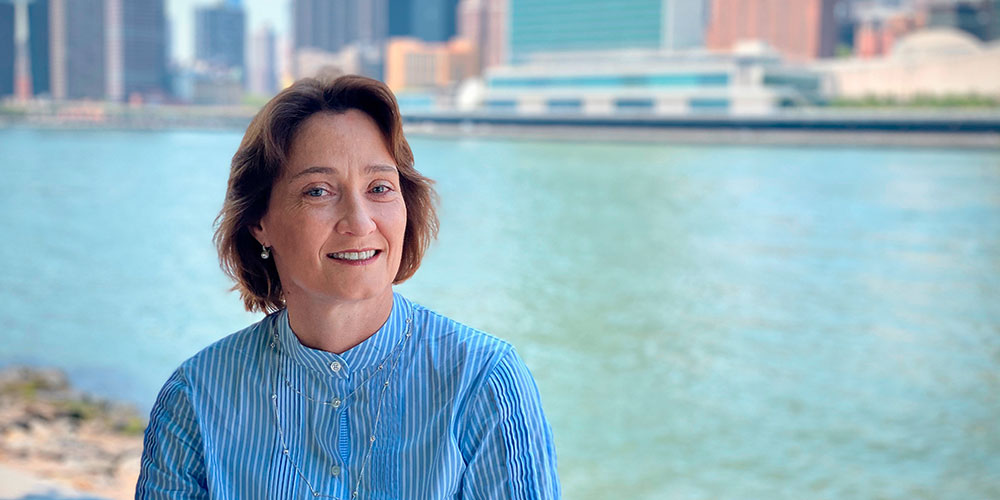Global challenges and the coronavirus crisis.
Text: Pascale Baeriswyl
Pascale Baeriswyl studied law, history and French literature and linguistics at the University of Basel. Today she is an ambassador to the UN in New York.
On 26 June 1945, the United Nations Charter was signed by 50 nations in San Francisco. It took two months of negotiations involving 850 delegates before the visionary document could be unanimously adopted. 75 years later to the day I was confirmed as Switzerland’s Permanent Representative to the UN – in a virtual ceremony, as New York is currently in a state of emergency due to the coronavirus pandemic. Thousands of people have lost their lives here, while the economic and social consequences of the crisis are still impossible to gauge. The crisis mode that shapes our daily working life mirrors the global challenges we wrestle with every day in our debates.
How do I and my 40-strong team represent Switzerland on the bank of the East River in these peculiar times? Churchill once quipped that “the United Nations was set up not to get us to heaven, but only to save us from hell.” I might put it more prosaically: the UN, with its 193 member states, is the world’s most universal organization. Its headquarters are a place where all state actors – and many others – have the opportunity to discuss crisis prevention, speak on behalf of people in need or develop global standards. However much the end of multilateralism is invoked or overstated, the fact remains that this is a place where countless people and topics converge. In times of polarization, compromise can be hard to come by. As a result of Switzerland’s culture of dialogue, we are often called upon as bridge builders. It is also in our own interest to play this part; as a global export nation with a humanitarian tradition, we depend on carefully calibrated power dynamics.
How do we make a difference in concrete terms? With regard to development, as a contributor to the United Nations budget we play a part in shaping how the UN provides local assistance, for instance in the wake of the recent explosion in Beirut. In July, I was elected vice-president of the Economic and Social Council, which is working to mitigate the impacts of the Covid-19 pandemic. Its efforts are guided by the 2030 Agenda for Sustainable Development, which also provides a roadmap to tackle the climate crisis. When it comes to human rights, one of our key priorities is promoting women’s rights. And for 2023/24, the Swiss Federal Council has applied for a place on the UN Security Council, invoking our tradition of peacebuilding. So far, our bid to join the council is uncontested. It means that we are further strengthening our efforts toward peace and security.
“The city that never sleeps” has been hit hard by the crisis. There is little sense of gemütlichkeit in the global village right now. Nevertheless, we are deeply moved by the resilience and solidarity on display. It is this esprit that we would like to take with us to the UN in order to face up to the challenges ahead of us shoulder to shoulder.
Pascale Baeriswyl studied law, history and French literature and linguistics at the University of Basel. She has previously worked as a researcher and served as an ordinary judge at the Basel Civil Court. In 2000, she joined the Swiss diplomatic service, holding various posts including at the embassy in Hanoi, the Swiss mission to the EU in Brussels and the UN in New York. In 2016, she was appointed Switzerland’s first female state secretary and chief diplomat. She has been an ambassador to the UN in New York since June 2020.
More articles in the current issue of UNI NOVA.

